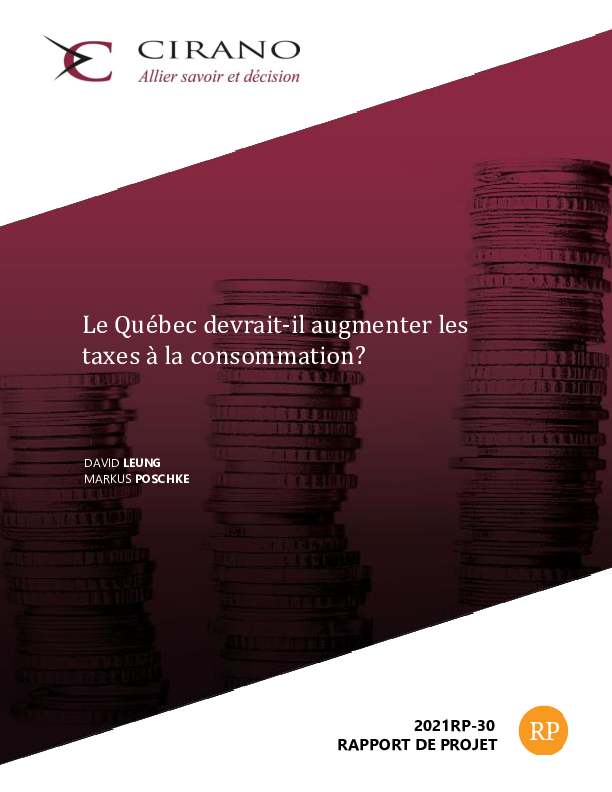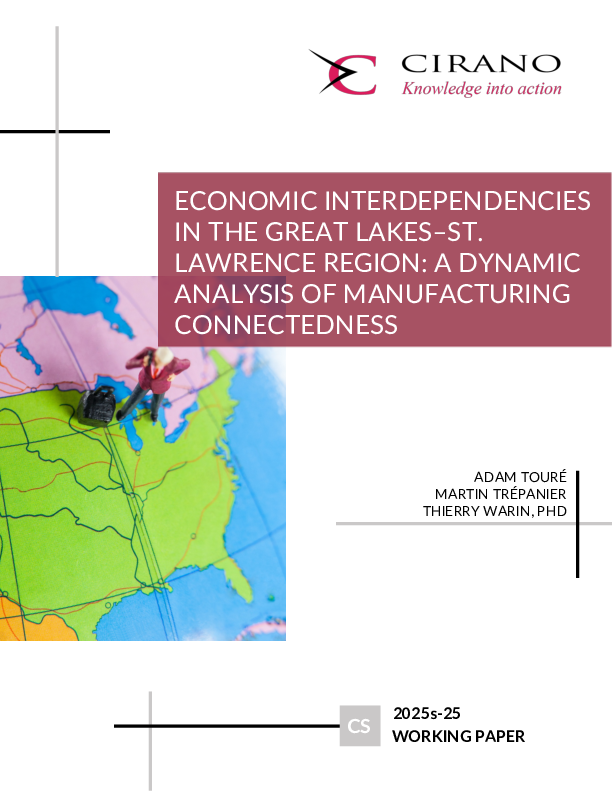Le Québec devrait-il augmenter les taxes à la consommation?
We study the effects of four tax reforms using a life-cycle model with overlapping generations and heterogeneous agents in the presence of idiosyncratic risk to labor and capital income under a complex tax system. The model adequately replicates the joint empirical distributions of income, wealth and tax payments. In an economy with a highly progressive personal income tax, a revenue-neutral shift from taxes to consumption taxes increases savings and output. This policy particularly benefits those with low levels of wealth relative to their income. Several reforms increase aggregate income, despite small increases in inequality.




